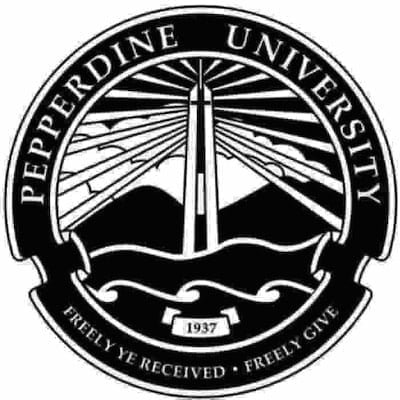A lawsuit filed Wednesday, June 3, in U.S. District Court for the Central District of California wants Pepperdine University to refund tuition and fees paid for 2020 spring and summer semester classes, which are now taking place online with students at home due to COVID-19.
The class-action complaint filed by Joseph Pinzon, the parent of a Pepperdine graduate student, alleges that despite sending his son home and closing the Malibu campus, Pepperdine “continues to charge for tuition, fees, and/or room and board as if nothing has changed, continuing to reap the financial benefit of millions of dollars from students.”
The case argues that, although students were asked to move out of the school’s Malibu campus by March 15 and finish their Spring 2020 courses online, Pepperdine refused to issue refunds for tuition and fees, choosing instead to “shift the financial burden onto proposed class members and their families.”
Pepperdine spokespeople did not return multiple requests for comment by the time The Malibu Times went to print Tuesday.
Pinzon contends he paid $27,820 for tuition, about $7,835 for room and board and a $126 campus fee for his son’s tuition and fees for the spring and summer 2020 academic terms, for a total of $35,781. He also noted that tuition for his son’s graduate program is set to increase by 3.8 percent for the fall 2020 term.
“Such charges for study are significantly higher than online-only programs, including online courses that [Pepperdine itself] offers,’’ the complaint stated. Despite the seeming difference in value between in-person and online classes, the university has refused to offer prorated tuition refunds, agreeing only to prorate housing and dining cost— inconsistently across Pepperdine’s five schools, the document stated.
The lawsuit calls the university’s practices “immoral, unethical, oppressive, unscrupulous or substantially injurious” and accuses Pepperdine of breach of contract, unjust enrichment, conversion and violations of California law, and claims that while students paid for and were promised a “comprehensive academic experience,” they received instead “something far less.”
“Simply put, Pepperdine students experienced significantly less than what they were promised in their spring 2020 semester,” Steve Berman, managing partner of Hagens Berman and attorney for students in the class action, told Business Wire. “While they were barred access from the university’s campus, dorms, dining halls, libraries, athletic facilities and other amenities, their tuition was still pocketed by Pepperdine. We don’t think that’s right.”
Lawsuit documents note that Pepperdine University extols its location and campus as a major selling point to potential students, as well as its promise to develop “the next generation of leaders through rigorous academics, faculty mentorship and a robust campus life,” with benefits including small classes, campus environment and individual attention from “teacher-mentors.”
Court documents state that Pepperdine University, as of June 30, 2019, had an endowment totaling approximately $887.46 million and ended the fiscal year with assets totaling more than $1.96 billion. In 2017, the university raised $562,049 in just 37 hours for the inaugural Give2Pepp campaign.
Similar lawsuits have been filed in recent weeks in Los Angeles against the University of Southern California (USC), Loyola Marymount University, and the University of California and California State University systems in addition to many similar lawsuits all across the U.S. for failure to refund college and university tuition-payers for their losses.

